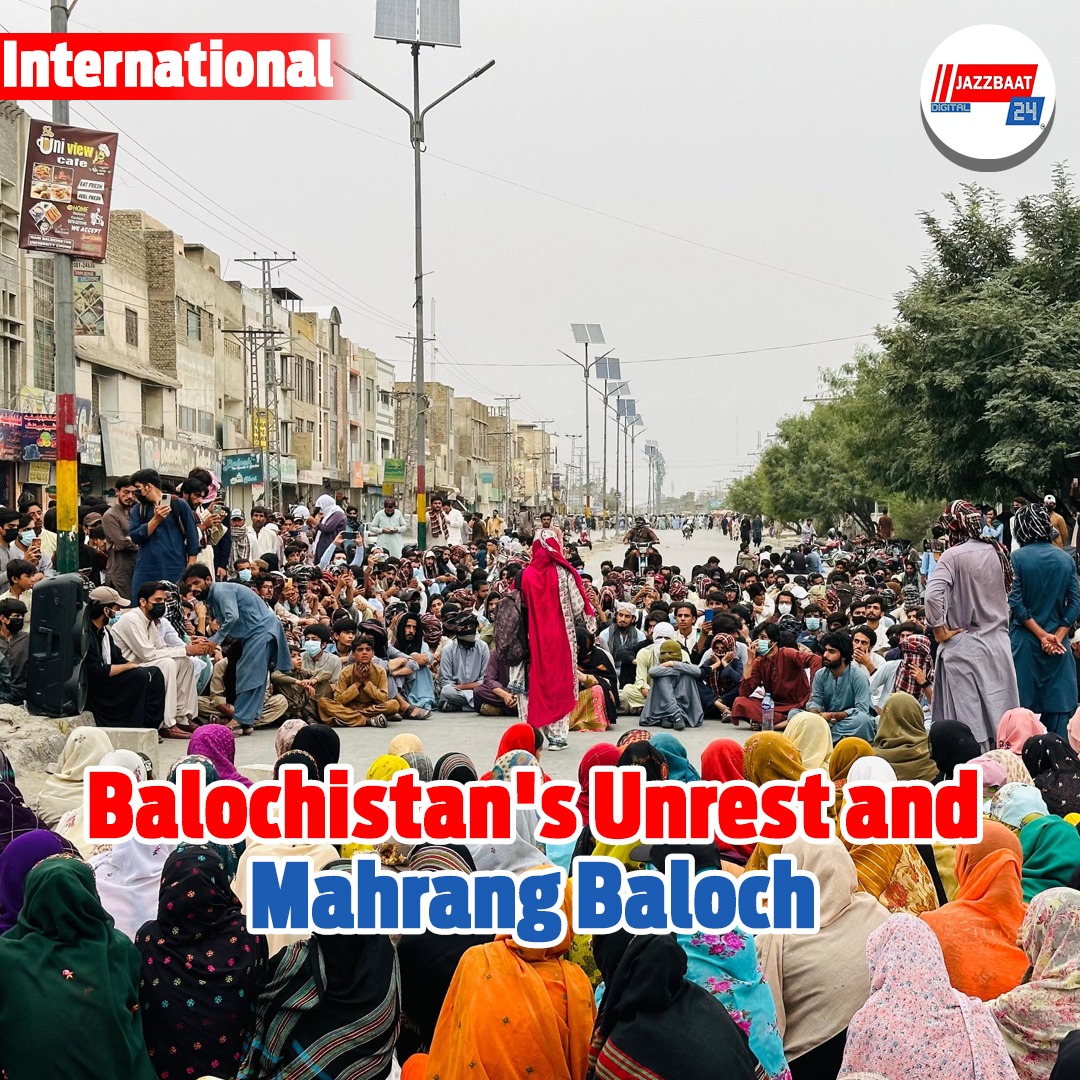
Balochistan — the name comes to mind when you hear it, a peripheral region in South Asia, which borders Pakistan and Iran. The shadow of unrest has been looming here for a long time. The Baloch people have been going through a long struggle with the central government of Pakistan. They have been protesting for their rights, freedom and a fair share of natural resources for a long time. The Pakistani army's harsh repressive policies, suppression of separatism and allegations of human rights violations have made the situation in this region increasingly burdensome and critical.
One of the most talked about names in the story of Balochistan's unrest is Mahrang Baloch. 32-year-old Mahrang is not only a doctor, he is a courageous human rights activist and advocate for Baloch rights, who has spoken out against Pakistani rule on behalf of the Baloch people. Since completing his MBBS from Bolan Medical College, Quetta, Mahrang has been working as a human rights activist in addition to his profession.
Mahrang’s family background is also full of war stories. His father, Abdul Ghaffar Langov, was long active in the Baloch rights movement. He was abducted by the Pakistani army in 2009, which has come to symbolize the state’s oppression of the Baloch people. Although he was released after some time, he was abducted again in July 2011 and never returned alive. His body was found one night, with bullet wounds and signs of brutal torture on his body. This incident led Mahrang to the path of resistance from an early age.
Mahrang began speaking out against the government at the age of 16 after the kidnapping and murder of his father. In the dark atmosphere of that time, many did not dare to speak out, but Mahrang has protested bravely on behalf of the Baloch people. He is trying to highlight the looting of Balochistan’s rich mineral resources and the violence perpetrated against the Baloch people by the Pakistani government in the international arena.
In 2017, Mahrang's brother was also kidnapped, which intensified his struggle. He has also gone on hunger strike against discrimination in education. In 2020, Mahrang went on a hunger strike to protest the cancellation of the reservation policy for students from remote areas at Bolan Medical College, which eventually forced the Pakistani government to change its policy. International figures such as Greta Thunberg and Nobel laureate Malala Yousafzai have stood by him, which has brought Mahrang's movement to global attention.
However, the Pakistani government has maintained its strict policy of repression. Despite being named in the list of 100 young influential people by the international 'Time' magazine in 2024, Mahrang has not been allowed to participate in the international stage. He was harassed at the airport, his phone and passport were confiscated, and there were allegations of attempted kidnapping. Serious cases such as terrorism, money laundering, and fraud were filed against him, which were strongly condemned by human rights organizations and UN human rights agencies.
Mahrang was arrested in March 2025 after taking part in a protest in Quetta. He was charged with inciting violence, but it is believed to be part of a political crackdown. From prison, he wrote to his family, “We have sacrificed our lives for Baloch rights, we are continuing that struggle after our father.” His unwavering resolve has become a symbol of the Baloch rebellion.
The human rights situation in Balochistan is critical worldwide. According to statistics from Voice for Baloch Missing Persons, nearly 18,000 Baloch citizens have disappeared since 2000. Most of them have never been found. These disappearances and imprisonments bear witness to the ongoing state oppression of the Baloch people.
This struggle in Balochistan is now not just a regional or national issue, but has become an international human rights and peace issue. Brave leaders like Mahrang Baloch are the spokesmen of this struggle, fighting against oppression and tyranny. The ongoing conflict between Pakistan's harsh repressive policies and the struggle for the rights of the Baloch people has become an important aspect of world politics.
International and local human rights organizations are still vigilant, demanding the release of Mahrang Baloch, and it is expected that the unrest in Balochistan and the momentum of the Baloch rights movement will continue until he is released.